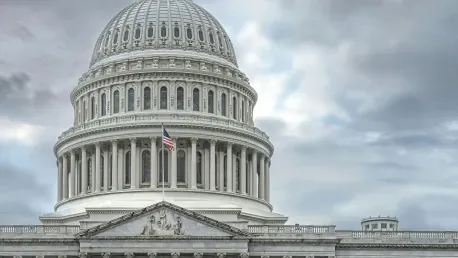A recent survey conducted by Justworks and The Harris Poll uncovered a significant sentiment among American workers. The majority believe that recent changes in federal policies, particularly those introduced under former President Donald Trump, will have more direct and immediate effects on their job security than emerging technologies such as artificial intelligence. This strong sentiment towards federal policies affecting their lives is shared broadly across various industries, roles, and company sizes.
The Role of HR Teams in Navigating Policy Changes
HR Teams as Navigators
Almost half of the surveyed workers look to their HR teams for guidance in understanding and adapting to these federal policy changes. This places a considerable burden on HR departments, particularly within small businesses, which often lack the resources and workforce of larger firms. Small businesses are at a crossroads, needing to efficiently manage these additional responsibilities amidst significant policy shifts.
Effective HR management and transparent communication are essential in fostering a compliant and resilient workplace. This is crucial in a climate where employees are already feeling overwhelmed by continual changes in tariffs, tax provisions, and delays in Employee Retention Tax Credit funds. A considerable 52% of employees reported struggling to keep up with these new federal requirements, a sentiment more pronounced among those working at smaller companies. This scenario underlines the importance of competent HR teams in ensuring employees remain informed and capable of adapting to changing federal landscapes.
Increased Responsibilities and Stress
Many workers are concerned that these policy changes may lead to job-related changes that are not necessarily positive. These may include benefit cuts, layoffs, and shifts in company culture, fueling a general sense of uncertainty and stress among employees. Even though fears of inflation and recession have slightly decreased since earlier this year, workers continue to take precautionary measures such as saving money and starting side gigs. This behavior indicates a prevailing sense of insecurity about the future.
The impact of these external changes goes beyond work-related concerns. More than half of the respondents expressed feeling pressure to continue working even while undergoing burnout or mental health struggles. There’s a noticeable interest in HR-led initiatives aimed at addressing mental health benefits, stress management, and crisis response. This reinforces the critical role HR departments play not just in policy navigation, but also in supporting employee well-being.
Job Security and Understanding Policy Changes
Dependency on HR Expertise
The dependency on HR expertise for navigating federal policy changes reflects the broader challenges employees face in understanding complex legislative updates. The survey underscores an ongoing struggle: many workers find it difficult to grasp the nuances of new policies and how these might affect their personal job security. Small businesses, in particular, face heightened stress in maintaining compliance while also trying to reassure their employees.
This difficulty in comprehension is predominantly due to the varied nature of these federal policies, which encompass new tariffs, revisions to the tax code, and updates to programs like the Employee Retention Tax Credit. Employees’ reliance on HR teams highlights a pressing need for enhanced communication and education within the workplace. Furthermore, there’s a call for clear strategies and training that can help employees better understand and navigate these changes.
Broader Impact on Workforce
The overarching concern across all employment sectors is job security. Workers harbor fears about potential negative changes to their employment conditions resulting from federal policies. While economic indicators such as rates of inflation and recession worries may have slightly improved, the survey reveals that precautionary behaviors like saving money and seeking additional income streams are still prevalent among workers. Job-seeking activities, such as periodically updating resumes and researching salary benchmarks, have remained steady.
Additional concerns stem from global political instability, contributing further to worker stress. These external factors exacerbate feelings of job insecurity and highlight the necessity for efforts focused on employee mental health. High stress levels are leading more employees to feel pressured to work under suboptimal conditions, including during times of burnout or while dealing with mental health problems.
Navigating an Evolving Landscape
A recent survey by Justworks and The Harris Poll revealed a significant sentiment among American workers. The majority of respondents believe that recent federal policy changes, especially those introduced during former President Donald Trump’s administration, will have a more direct and immediate impact on their job security than emerging technologies like artificial intelligence. This perspective is widely shared across various industries, roles, and company sizes. Workers seem to be more concerned about the ripple effects of these government policies on their professional lives rather than the advancements in AI and automation. Indeed, while technology continues to evolve rapidly, the prevailing belief is that the direct influence of federal policies will shape the present and future landscape of job security to a greater extent. This sentiment indicates that employees are keeping a keen eye on legislative changes, underscoring the critical role that government actions play in the workforce stability across the nation.









